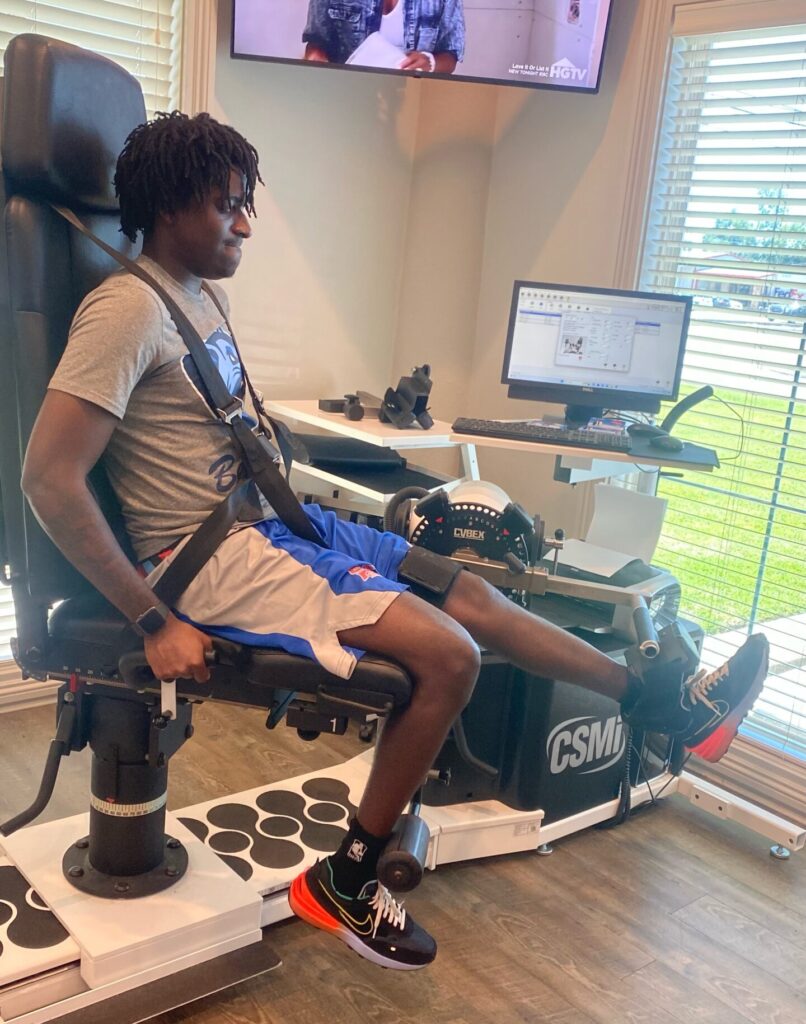Muscle strength and function are assessed through isokinetic testing, a specific form of physical performance assessment. To determine a person’s muscle ability and create a suitable rehabilitation program, it is frequently used by physical therapists.
What is Isokinetic Testing?
In isokinetic testing, the speed of a movement is controlled by a machine, enabling a constant velocity across the range of motion. Depending on how hard the person being tested pushes against the machine, different levels of resistance are applied. This provides a precise assessment of the person’s muscular strength and endurance as well as the detection of any abnormalities or asymmetries between various muscle groups.
How is Isokinetic Testing Used?
Isokinetic testing is most frequently used in physical therapy to assess knee and shoulder joint problems. In such circumstances, the machine is ordinarily configured to isolate the joint and determine the power and stamina of the muscles around it.
During the test you will be asked to make a specific movement throughout the test while sitting or lying on the apparatus, such as flexing or extending your knees or twisting your shoulders. You will then need to push or pull as hard as you can against the resistance.
The device then captures the force that was produced at various places along the range of motion. With this information, your strength profile can be created and then compared to typical values based on age, gender, and body type. Comparing isokinetic testing to other types of strength testing offers many benefits.
Benefits of Isokinetic Testing
The ability to precisely assess muscle strength at various places along the range of motion is the first benefit. This can aid in locating weak points or regions of asymmetries that other testing methods might miss. Another benefit of isokinetic testing can provide you and your PT unbiased information regarding your development over time. The test can be repeated often to track changes in strength and function and to allow for any necessary alterations to your rehabilitation program. Lastly, isokinetic testing can be used to determine your unique strength goals, which can help to motivate you throughout your physical therapy sessions.
Isokinetic testing is a valuable tool for physical therapists to evaluate an individual’s muscle strength and function. By providing precise measurements and objective feedback, it can help develop an appropriate rehabilitation program and monitor progress over time. The expert physical therapists and staff at Evolve Physical Therapy use isokinetic testing to provide the best treatment for their patients.


